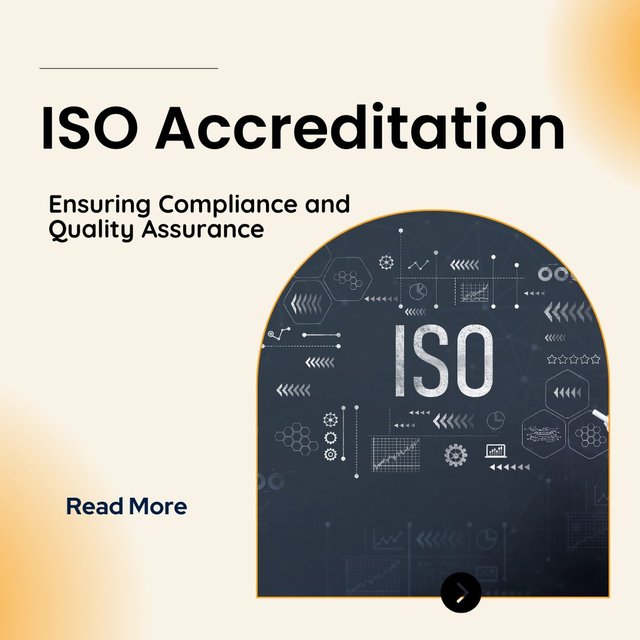ISO Accreditation: Ensuring Compliance and Quality Assurance
ISO accreditation plays a pivotal role in ensuring compliance and quality assurance across various industries, providing organizations with a framework to establish and maintain effective management systems. The International Organization for Standardization (ISO) develops and publishes a wide range of standards covering different aspects of business operations, including quality management, environmental management, information security, and more. Achieving ISO accreditation demonstrates an organization's commitment to meeting international standards and delivering products or services of consistent quality.
One of the primary benefits of ISO accreditation is the assurance of compliance with recognized standards, which enhances credibility and trust among customers, stakeholders, and regulatory authorities. By aligning with ISO standards, organizations demonstrate their commitment to best practices, continuous improvement, and customer satisfaction. ISO accreditation also facilitates access to new markets, as many government agencies and international organizations require suppliers and partners to be ISO-certified.
Furthermore, ISO accreditation helps organizations streamline their processes, improve efficiency, and reduce waste by implementing standardized procedures and controls. This leads to cost savings, increased productivity, and better resource management. ISO-accredited management systems enable organizations to identify and address risks, mitigate potential liabilities, and enhance overall performance.
ISO accreditation also fosters a culture of quality and continuous improvement within organizations, encouraging employees to actively participate in achieving organizational objectives and meeting customer expectations. Through regular audits and assessments, organizations can identify areas for improvement, implement corrective actions, and monitor progress towards achieving their quality objectives.
Another significant benefit of ISO accreditation is the ability to enhance competitiveness and differentiate products or services in the marketplace. ISO-certified organizations often enjoy a competitive advantage over non-certified competitors, as they demonstrate a commitment to quality, reliability, and customer satisfaction. This can lead to increased market share, improved brand reputation, and enhanced customer loyalty.
Moreover, ISO accreditation promotes environmental sustainability by encouraging organizations to adopt eco-friendly practices, reduce their carbon footprint, and minimize the impact of their operations on the environment. ISO standards such as ISO 14001 provide guidelines for implementing effective environmental management systems, conserving resources, and promoting sustainable development.
In summary, ISO accreditation is essential for ensuring compliance, driving quality assurance, and achieving organizational excellence. The benefits of ISO accreditation include enhanced credibility, improved efficiency, cost savings, market access, and environmental sustainability. By obtaining ISO accreditation, organizations can demonstrate their commitment to excellence, meet customer expectations, and stay competitive in today's global marketplace.
